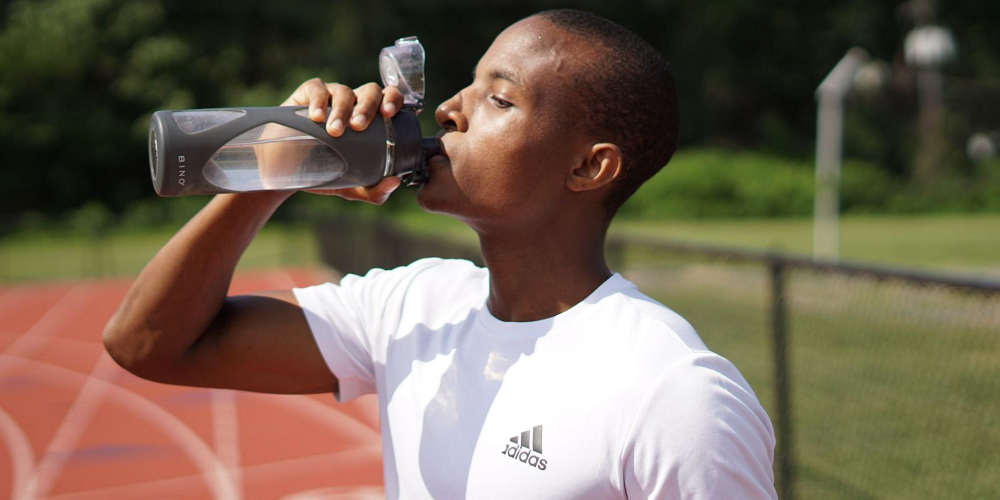So you’re having trouble sleeping, huh? You toss and turn for hours, stare at the ceiling, and wake up feeling like a zombie. Well, friend, you’re not alone. Millions of people struggle to get quality shut-eye every night. But here’s the good news: you can beat your insomnia and transform your sleep in just 30 days. This month-long Simba Sleep Challenge is going to arm you with the tools and know-how to become a champion sleeper. Each day we’ll give you simple tips and activities focused on optimizing your sleep environment, establishing a relaxing bedtime routine, and improving your mattress and pillow setup. By the end of this challenge, you’ll be snoozing like a baby and waking up refreshed and ready to take on the world. So get ready to make this next month the start of your new well-rested life! The Simba Sleep Challenge begins now.
Day 1: Assess Your Current Sleep Habits
The first step to improving your sleep is understanding your current sleep patterns and habits. For the next week, keep a sleep diary to log details about your sleep-wake times, naps, caffeine, and screen time. Be honest – this info will help you pinpoint issues.
Some questions to consider:
- Do you have an irregular sleep-wake schedule? Going to bed and waking up at the same time daily is key.
- Do you use electronics right before bed? The blue light they emit disrupts your circadian rhythm. Stop screen time 1 hour before bed.
- Do you nap during the day? Naps can interfere with nighttime sleep, so limit naps to 30 minutes and avoid them after mid-afternoon.
- Do you drink caffeine or exercise late? Both can keep you awake if done close to bedtime. Cut off caffeine by early afternoon and finish workouts at least 2 hours before bed.
- How old is your mattress? If it’s over 10 years old, it’s likely not providing adequate support and comfort, making it harder to fall asleep. Consider investing in a high-quality mattress like the Simba Hybrid® for better sleep.
Review your sleep diary after a week and look for patterns of poor sleep hygiene. Tackle one issue at a time, starting with the most problematic ones. Establishing good sleep habits and the right environment will set you up for success in this 30-day challenge and help you beat your insomnia for good. Sweet dreams!
Day 7: Optimise Your Bedroom for Better Sleep
Day 7 is all about optimizing your sleeping environment. Your bedroom should be a sanctuary dedicated to sleep.
Keep it dark
Use blackout curtains or an eye mask to block outside light. Darkness stimulates your body’s production of melatonin and makes it easier to fall asleep.
Keep it quiet
Minimise noise pollution from electronics, pets, and loud neighbors. If complete silence is impossible, try using a white noise machine, fan, or sound conditioner to mask abrupt noises.
Keep it cool
Lower the thermostat to around 65-67°F for the best sleep environment. Your body temperature drops when you sleep, so a cooler room assists this natural process.
Limit screen time
Blue light from electronics suppresses melatonin production and makes it harder to fall asleep. Stop looking at bright screens 1 hour before bed. Do some light reading, take a warm bath, or listen to calming music instead.
Use your bed only for sleep
Train your mind to associate your bed only with sleeping by not doing work, watching TV, or using electronics while in bed. This helps make your bedroom a restful sanctuary dedicated to high-quality sleep.
Invest in the right mattress
Your mattress plays a significant role in sleep quality and insomnia relief. Look for a medium-firm mattress that keeps your spine aligned while cushioning pressure points. High-quality foam or spring mattresses typically offer the best support for most sleepers.
Making a few simple changes to your sleeping environment and pre-bed routine can have a huge impact on your sleep quality and daytime well-being. Use Simba’s sleep challenge to build better sleep habits and transform your bedroom into an insomnia-fighting sanctuary. Sweet dreams!
Day 14: Adopt a Consistent Sleep Schedule
By day 14 of the Simba Sleep Challenge, you’ve likely started to notice some improvements in your sleep. But to really cement better sleep habits and beat your insomnia for good, it’s time to adopt a consistent sleep schedule.
Go to bed and wake up at the same time every day
The key to establishing a sleep schedule is consistency. Pick a bedtime and wake-up time that works for your needs and stick to it, even on weekends. This helps to regulate your body’s internal clock and optimize your sleep. Try going to bed between 9-11 pm and waking up around 6-8 am.
Avoid screens and bright lights before bed
Blue light from electronics and bright lights tricks your brain into thinking it’s daytime. Stop looking at bright screens 1 hour before bed. Do some light reading, take a warm bath, or listen to relaxing music instead.
Make your bedroom as dark as possible
Use blackout curtains or an eye mask to block outside light. Even small lights from electronics can disrupt your sleep. Make sure all devices are turned off or charging outside your bedroom.
Give your body time to unwind
In the hour before bed, avoid strenuous exercise, big meals, and caffeine. Do some light stretching or read a book. Your body and mind need time to relax into sleep mode.
Be patient through the adjustment period
It can take time for your body to adapt to a new sleep schedule. You may feel groggy or irritable at first. Push through this adjustment period, as it will pay off with improved sleep quality and daytime alertness. Stay committed to your new sleep schedule for the best chances of overcoming your insomnia.
Sticking to these tips will help you establish an excellent sleep schedule. Over the next week, continue avoiding screens before bed, turn off bright lights, and maintain your consistent sleep-wake times. You’ll be well on your way to beating your insomnia and feeling refreshed each morning. Sweet dreams!
Day 21: Upgrade Your Mattress for Added Comfort
After three weeks of improving your sleep hygiene and sticking to a consistent bedtime routine, your body and mind should be well on their way to better rest. However, if you’re still waking up with aches and pains or feeling like you didn’t get high-quality sleep, it may be time to consider a new mattress.
The average mattress lasts between 7 to 10 years, so if yours is pushing that age or more, it’s likely not providing the support and comfort you need for your best sleep. As we get older, our bodies change and require different levels of firmness and cushioning. An outdated or unsuitable mattress can lead to back pain, restlessness, and difficulty falling or staying asleep.
Do some research on the latest mattress types like memory foam, latex, and hybrid models which provide pressure relief, support, and temperature regulation for most sleepers. Check out reviews from independent experts and customers to determine options in your budget. Once you’ve narrowed down the choices, visit a store to try out the top contenders. Lie down on each mattress for at least 10-15 minutes to get a sense of how your body responds to different materials and firmness levels.
When you find one that feels like the perfect balance of cozy and supportive, you’ll know you’ve discovered the mattress of your dreams. After purchasing, give your body 2 to 4 weeks to adjust to the new mattress before determining if it’s the right long-term solution for your slumber needs. With the right mattress and the sleep habits you’ve built over the past three weeks, restful nights and energized days are within your reach. Sweet dreams!
Day 30: Reflect on Your Sleep Improvements Thanks to Simba

Congratulations! You’ve completed Simba’s 30-day sleep challenge. Over the past month, you’ve implemented many new habits and tips to improve your sleep quality and beat insomnia. Now it’s time to reflect on how far you’ve come.
Your Mattress Matters
One of the biggest factors in your improved sleep has been your Simba mattress. Having a high-quality mattress tailored to your sleeping needs and preferences has allowed you to sleep more soundly and wake up feeling rested. Think about how much better you feel after 30 nights on your Simba.
New Nighttime Routine
Establishing a relaxing bedtime routine has helped you unwind and signal to your body that it’s time to sleep. Dimming the lights, limiting screen time, meditation or light yoga are all part of your routine now. Sticking to a consistent schedule has also helped regulate your circadian rhythm.
Better Sleep Hygiene
You’ve made your bedroom into a sleep sanctuary. A cool, dark room free of clutter and distractions sets the perfect environment for sleep. Keeping your bed for sleep and sex only has strengthened the mental association between your bed and sleeping.
Less Caffeine and Stimulants
Reducing or eliminating caffeinated and sugary drinks, especially in the afternoon and evening, has decreased anxiety and restlessness at night. Staying hydrated and avoiding large meals close to bedtime has also helped you sleep more soundly.
Relaxation Techniques
When sleep is elusive, you’ve learned to relax your mind and body. Deep breathing, progressive muscle relaxation, and visualization are all powerful techniques for unwinding a restless, racing mind. Keep practicing them – they’re useful for sleep and managing stress in your daily life.
Congratulations on completing the Simba Sleep Challenge! The habits and skills you’ve developed over the last 30 days will serve you well for years to come. Sweet dreams and keep sleeping soundly on your Simba mattress. You deserve it!
Conclusion
So there you have it, your 30-day guide to sleeping like a champion. You’ve learned how important your mattress is, tried relaxation techniques, minimized screen time, and stuck to a solid routine. Getting good sleep isn’t always easy in today’s fast-paced world, but by making small changes each day you’ve built new habits and transformed your sleep for the better. Now you’re waking up refreshed, productive, and ready to take on whatever each day brings. Sweet dreams! Here’s to many more restful nights ahead. You should feel proud of your accomplishment in completing the Simba Sleep Challenge.




